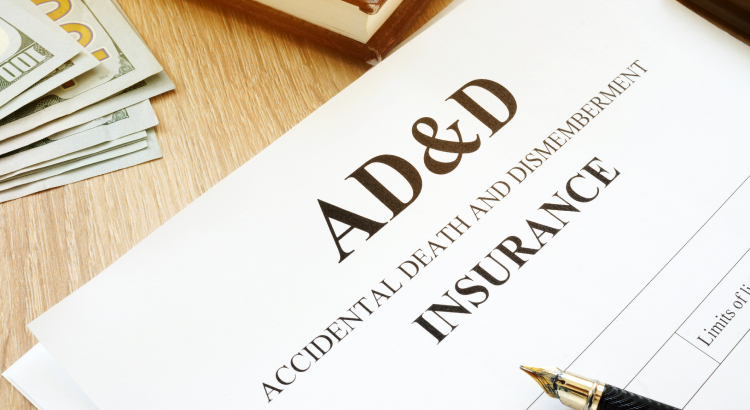FROM OUR PARTNERS

Although both term insurance and accidental death & dismemberment (AD&D) policies cover death, they still vary in ways.
AD&D protects against accidental death. It also pays if you lose function of the following: hearing, eyesight, or even a limb.
Life insurance is a type of policy where you pay premiums, and after you pass away, your beneficiaries receive death benefits from the insurance company. There are two types of life insurance: term life and whole (also referred to as permanent) insurance.
The following is everything you need to know about term life insurance and AD&D.
Term life is an insurance policy that helps provide financial coverage for a predetermined period. It guarantees a payout to the beneficiaries designated if the policyholder dies within the specified period.
If the policyholder outlives the policy, the payment is canceled. You can opt to renew your current term life policy or convert it into whole life insurance.
A Return-of-Premium (ROP) rider is an additional insurance policy that refunds all the premiums you paid if you outlive your term life insurance.
You can buy a ROP rider on top of the life insurance policy if you want your premiums back. However, it’s much more costly than a standard term life insurance.
AD&D insurance covers unintentional death or dismemberment of the insured. AD&D insurance can be purchased at your workplace or as a separate product altogether. It can also be added onto a preexisting life insurance policy as a rider.
Dismemberment includes the loss of a body part or function such as hearing, speech, movement, and sight. However, it doesn’t pay if the policyholder dies of natural causes such as heart disease.
You should be careful when purchasing a policy, as the limitations of AD&D are significant. For instance, there are exclusions such as suicide, drug overdose, injury, death when committing a crime, etc.
| Term Life Insurance | AD&D Insurance |
| Pays out in the case of death; including an illness, disease, or accident. | Covers accidental death; does not cover an illness or disease. |
| Covers death only. | Covers accidental death and loss of body parts and functions. The percentage of coverage varies depending on your insurance provider. |
| Coverage limitations vary depending on the term guidelines. | Has extensive coverage limitations. |
| Relatively, a more expensive coverage plan as it covers a majority of causes of death. However, the payout is higher than AD&D. | Costs less than a term life insurance as coverage is limited to accidents. The payout is lower than term life insurance. |
AD&D policies usually come with extensive limitations. So, make sure you read every detail and the fine print before buying a policy.
Insurance providers usually have a set timeframe for the beneficiary to collect on the AD&D policy. The beneficiary must provide evidence that the death or injury was directly related to an accident and are typically given three months to do so. Additionally, an AD&D policy may refuse to cover the following:
Term life insurance covers death from all causes, including illness and natural causes. AD&D, on the other hand, only covers accidental death and injuries.
However, if you work where you’re prone to physical accidents or your employer provides AD&D coverage, it’s good to consider. Weigh out which is more fitting for your lifestyle and also consider the pros and cons before making a decision.